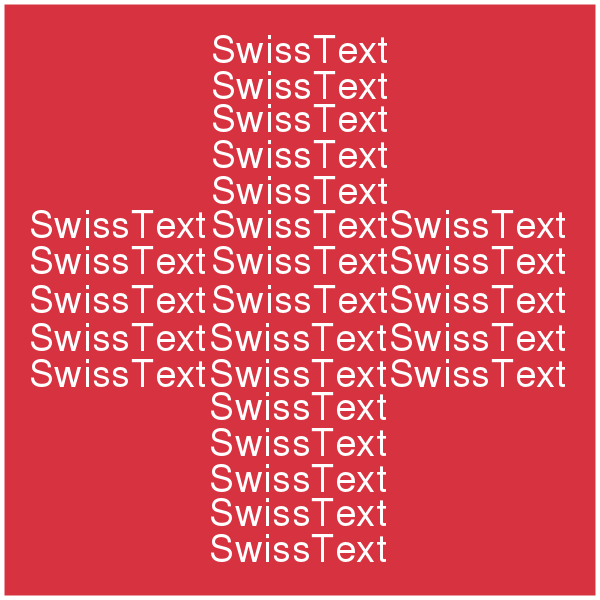Workshops
RAG: Unveiling the Power of Retrieval-Augmented Generation
10-11.6.2024 Swisstext 2024 Chur
Motivation and Goals
The Retrieval-Augmented Generation (RAG) framework represents a groundbreaking approach that seamlessly integrates two fundamental techniques, retrieval and generation, within a large language model (LLM). This innovative fusion aims to optimize information retrieval processes by searching external sources such as text databases or PDF documents and subsequently leveraging this acquired knowledge to enhance the language generation capabilities of the model. The result is the generation of more context-aware and informative responses, making RAG a valuable tool for companies with extensive documentation but lacking an efficient means to access specific information.
This workshop endeavors to provide a comprehensive understanding of the RAG technology, emphasizing its applications and advantages. Through a technical introduction accompanied by concrete examples, participants will gain insights into how RAG can be effectively employed to address challenges related to information retrieval and contextual generation. The workshop will also facilitate discussions on the practical implementation of RAG in real-world scenarios, exploring its potential in enhancing knowledge management systems.
Furthermore, the workshop will delve into the realm of self-hosted Large Language Models (LLMs), shedding light on the importance of data privacy and security in the deployment of generative AI technologies. Participants will be equipped with knowledge about the intricacies of hosting LLM models independently.
By the conclusion of the workshop, participants will possess the skills to proficiently interact with a LLM, querying it about the contents of its associated documents. The overarching goal is to empower individuals with the expertise needed to harness the full potential of RAG and self-hosted LLMs, fostering a practical and informed approach towards the integration of these technologies in diverse real-world applications.
Keywords: RAG, LLM, Ollama [1], langchain [2], self-hosted, generative AI, real-world application, information retrieval, data privacy, knowledge management.
Tentative Outline
Total duration: 2h30
- Technical background (Jonathan) duration: 30 min
- RAG overview
- Similarity Search and vectorstore
- LLM for generative response
- Hands on (Henrique) duration: 1h
- In Google collab (only a laptop is needed)
- vectorstore + LLM
- Langchain, Ollama, …
- Applied examples (Pedro) duration: 30min
- Showcase real world implementation of RAG applications
- Time for discussion (all) 30min
CV of the presenters
Célien Donzé, Research assistant in the lab of Data analysis of HE-Arc Neuchâtel since 2019. https://www.linkedin.com/in/celiendonze/
Jonathan Guerne, Research assistant in the lab of Data analysis of HE-Arc Neuchâtel since 2021. https://www.linkedin.com/in/jonathan-guerne-088bba1b6/
Henrique Marques Reis, Research assistant in the lab of Data analysis of HE-Arc Neuchâtel since 2023. https://www.linkedin.com/in/h-reis/
Pedro Costa, Co-Founder & CTO – Lumind https://www.linkedin.com/in/pedro-costa-10174b10a/
